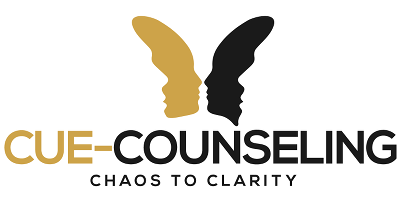How to Find the Right Mentor for You
Practical Tips to Build a Mentorship Relationship That Supports Your Growth
If you’ve ever thought, “I could really use some guidance,” you’re not alone. Whether you’re navigating school, building your career, or trying to rediscover your identity in a life transition, finding the right mentor can make all the difference.
But mentorship doesn’t always start with a formal ask or a title. Often, it grows from natural connection, shared values, and mutual trust. In this blog, you’ll learn how to identify, approach, and build a mentoring relationship that supports your personal and professional development.
What Makes a Great Mentor?
A mentor doesn’t need to be older or more successful — they simply need to be someone who sees your potential and helps you grow. Ideally, a strong mentor has:
-
Experience in a field or situation you’re navigating
-
Good communication and listening skills
-
A supportive but honest approach to feedback
-
A desire to see others succeed
-
Time and emotional availability to invest in you
Most importantly, the right mentor is someone you respect and feel comfortable being open with.
Where to Look for a Mentor
Mentors can be found in many areas of life — sometimes where you least expect:
👩🏫 Educational Settings
-
Teachers, professors, academic advisors
-
School counselors or mentors from college mentorship programs
🏢 Professional Environments
-
Managers, supervisors, or department leaders
-
Former colleagues or respected peers
-
Professional organizations or networking events
🤝 Community and Social Circles
-
Church groups or nonprofit volunteers
-
Coaches or team leaders
-
Friends of the family or trusted family members
🌐 Online Mentorship Platforms
-
LinkedIn groups or career-specific forums
-
Industry mentorship programs (like SCORE, for entrepreneurs)
-
Local or national nonprofits offering mentorship (Big Brothers Big Sisters, iMentor)
How to Approach a Potential Mentor
It might feel intimidating to ask someone to mentor you — but it doesn’t need to be a formal proposal. Start with genuine curiosity and connection.
Here are a few steps:
-
Start a conversation — Ask questions about their path or insights.
-
Be clear about what you need — Are you looking for career guidance, emotional support, or help navigating a transition?
-
Be respectful of their time — Ask for a 30-minute call or coffee chat to begin.
-
Let the relationship evolve naturally — Mentorship often grows through ongoing connection, not one-off meetings.
💡 Pro tip: Instead of asking, “Will you be my mentor?” try saying,
“I really value your perspective. Would you be open to sharing advice with me as I navigate ___?”
How to Know It’s the Right Fit
The right mentorship relationship should feel:
-
Supportive and safe
-
Honest and constructive
-
Mutually respectful
-
Aligned with your values and growth goals
If the relationship starts to feel one-sided, dismissive, or draining, it’s okay to re-evaluate. You deserve mentorship that helps you thrive — not second-guess yourself.
Final Thoughts: Mentorship Is Built, Not Assigned
Finding the right mentor may take time, but it’s worth the effort. Keep in mind: great mentors don’t have to be perfect. They just need to show up with wisdom, honesty, and the willingness to walk alongside you.
The most successful mentoring relationships are built on connection, trust, and mutual investment — not titles or hierarchy.
Take the first step. Reach out. Ask questions. Show interest. Your next mentor may already be in your life, waiting to be asked.
